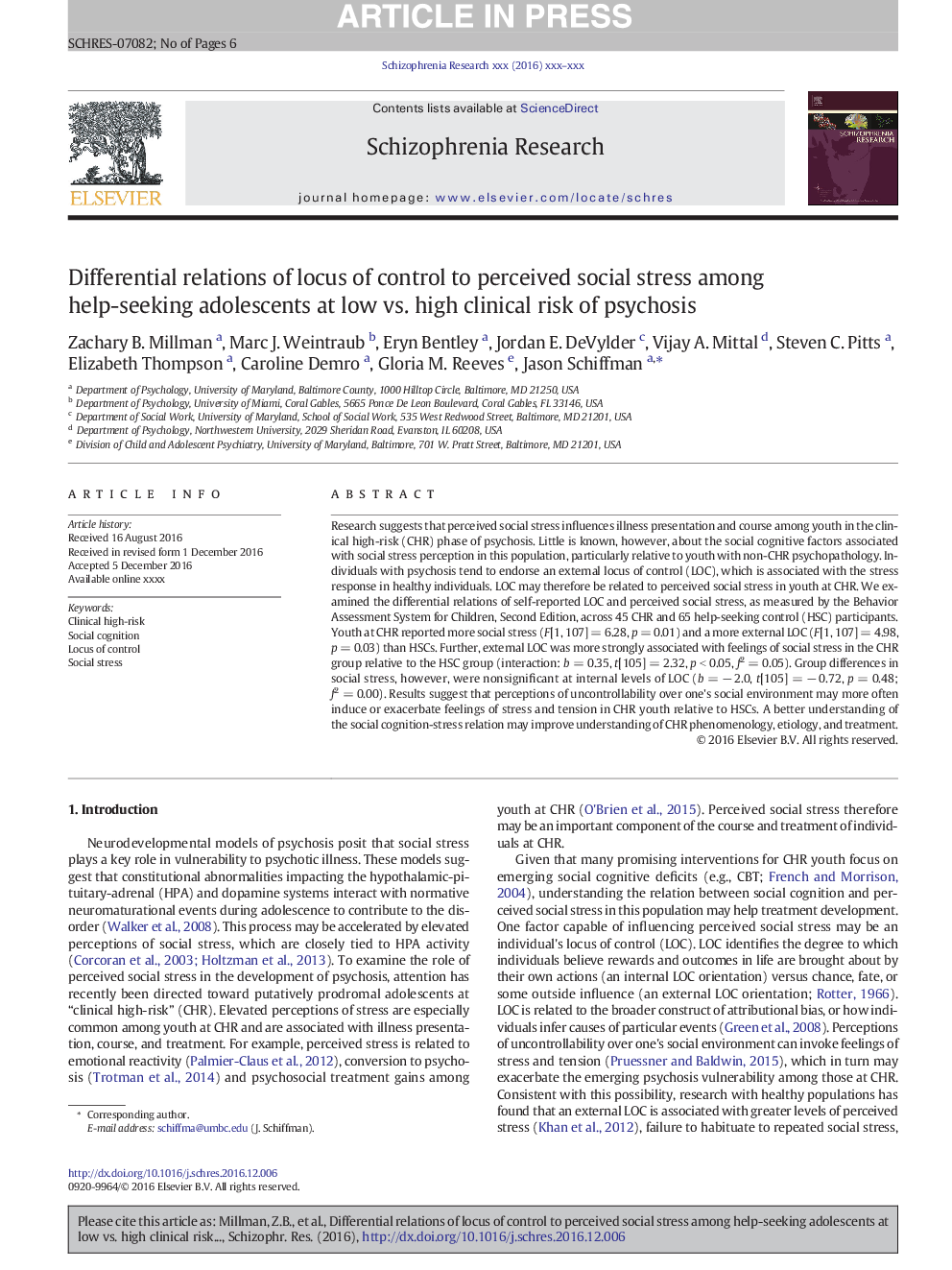ترجمه فارسی عنوان مقاله
روابط دیفرانسیل منطق کنترل به استرس اجتماعی درک شده در نوجوانانی که به دنبال کمک هستند در معرض خطر بالقوه بالینی روانپریشی
عنوان انگلیسی
Differential relations of locus of control to perceived social stress among help-seeking adolescents at low vs. high clinical risk of psychosis
| کد مقاله | سال انتشار | تعداد صفحات مقاله انگلیسی |
|---|---|---|
| 127222 | 2017 | 6 صفحه PDF |
منبع

Publisher : Elsevier - Science Direct (الزویر - ساینس دایرکت)
Journal : Schizophrenia Research, Volume 184, June 2017, Pages 39-44

